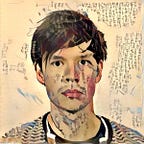Some of 2016 books
I’ve read several 2016 book reviews (one of them by Alvaro Videla) and thought I have read several books that have influenced my life enough for me to want to share them. It’s a bit hard to reproduce an order and establish some sort of significance, so the order I use will be rather arbitrary.
This year I was trying to learn more about how our world works (on a rather
primitive level though), did some recreational math reading and read up a bit on a history of mankind. Today I’m going to cover only some of the the popular science math / CompSci books I’ve read.
Scott Aaronson — Quantum Computing since Democritus
At some point I have accidentally stumbled over the TED talk by Scott Aaronson. I’m not a big TED fan, but this talk somehow caught my attention and the way he was speaking was somehow special to me. Later on, a friend of mine told me there’s a book by him, called “Quantum Computing since Democritus”. The book is extremely well written and thought through. It takes you on a journey, talking about how humanity has landed on current ideas of computability and mathematics.
He goes through the history of mathematics and invention of algorithm, further advancements and the later invention of the abstract machinery for calculations, the basics of complexity theory, explains P, NP complexity classes in a rather intuitive way, giving several different perspectives and examples of problems that would have a certain complexity. Turing machines, Halting Problem, Gödel Incompleteness Theorem, Free Will, Time Travel and much more.
Of course, the subject of Quantum Computing and the processes underlying it are also mentioned there. How would a Quantum Computer work, what are the current difficulties in building one, what are the advancements over the course of the last years.
The book is full of nice humour and really gives you a lot of things to think about. If you like his style of writing, you definitely have to check out his blog, it’s full of all kinds of gems.
At some point, I’ve taken an MIT 8.04 online just to understand Quantum Physics a bit better, although I still know and understand very little.
On the pages of his book, the author often refers to Fermat and Penrose, which led me to the following two books.
Simon Singh — Last Fermat Theorem
This one is more on the subject of math history. A theorem that can be understood by anyone who knows basic algebra, but couldn’t be proven until the invention of elliptic curves and modular forms, which are the rather complex concepts one coming from the number theory and the second from algebraic topology.
The book has some overlap with the previous one, since it tries to explain the development of math machinery we have available today. Pythagoras, Euclid, Euler, Hilbert, Gödel and many more.
The story of the Last Fermat Theorem proof is a story of the deep thought for me. It keeps reminding that any significant contribution you’re going to make will take a bunch of time and (most likely) you will take a couple of wrong turns along the way. The best thing you can do is to buckle up and persist, work through the harder concepts, learn and improve the arsenal of tools you need to tackle the problem. Sometimes you may even end up being proven wrong (or some may find some far-fetched conclusions or inconsistencies in your work). In this case, you’ll have to start thinking again. It’s never going to be easy, but that’s also the only way to take on bigger problems.
Roger Penrose — Emperors New Mind
Probably the best overview book I’ve ever seen on the concepts of mathematics that computing has been built upon.
What is reasoning, how the artificial intelligence may work, philosophical take on AI, Turing Test, discussing “understanding” of the AI through the Chinese Room argument. And, once again, what is computability, which implications it has on modern computers. Once again, it explains the basics of the Quantum Physics and possible ways it’s mysteries may help us today, how different interpretations of the Quantum theory have different outcomes for the computability in general. Scott Aaronson also talks about that in one of his essays.
This book goes in less details than the other two, but gives a much better overview on most of the subjects that touch computability, AI, algorithms and proofs, from both simply theoretical (e.g. “I kind of know what means”) and philosophical (e.g. “This is much harder than it seems because X and Y”) perspectives.
Wrapping up
I’d say these three books were extremely useful for me and have been a subject of dozens of conversations I’ve had with different people. First conversations were somewhat hard, since most of time even when I thought I understand something, it turned out that my understanding is much too limited to engage into a meaningful conversation. So every time I had to go back and dig deeper and re-evaluate my understanding. Gladly, people I’ve talked to were always graceful and didn’t mind that.
Books are also not that easy to follow. It’s hard to read them from cover to cover. Sometimes you’ll have to make some notes. Sometimes to read a Wikipedia article, sometimes research much deeper. Don’t rush yourself: these subjects are very broad and it’s ok to learn them one thing at a time. The main goal should be enjoying it and gaining a true understanding.
I thought this was going to be a blog post about the books that have influenced me the most in 2016, but it all looks much more like a tribute to Scott Aaronson. So I guess I’ll have to do another post and talk more about other books, both nonfiction and fiction that were making 2016 fun.
Be it so.
